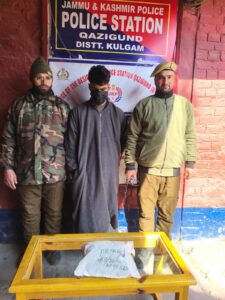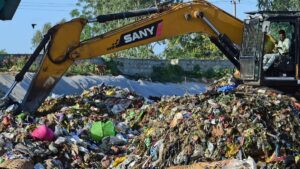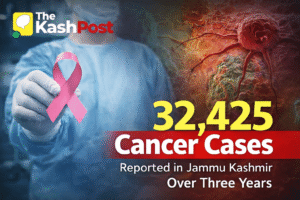The Geopolitics of Cancer Vaccines: Russia, the U.S., and the Global Race for Healthcare Dominance?

The development of a possible cancer vaccine in Russia has risen the interest and understanding of the world’s scientific and geopolitical communities. The Russian cancer vaccine, known as a ground-breaking success, uses artificial intelligence (AI) and modern mRNA technology to create personaled vaccine in less than an hour. The idea of a free, universal cancer vaccination is alluring, but it also describes the intricate interaction between geopolitical strategy, commercial interests, and scientific advancement.
Russia’s Breakthrough: A Technological and Humanitarian Leap?
Russia has created a cancer vaccine that uses AI and mRNA technology to generate individualized medicines based on each patient’s genetics.
The mRNA triggers the immune system to attack malignant cells while protecting healthy ones by targeting tumor-associated antigens on the tumor cells. Russia portrayed the vaccine as a humanitarian gift, but questions about its efficacy and safety are raised worldwide. The quick development and ubiquitous accessibility might be a
geopolitical strategy to obtain soft power rather than a scientific accomplishment.
The U.S. Approach: Science, Secrecy, and
Strategy
On the other hand, the United States has made significant progress in producing mRNA-based cancer vaccines through collaboration with organizations such as “Memorial Sloan Kettering” and corporations such as “Moderna”. These vaccines, which target illnesses such as glioblastoma, pancreatic cancer, and melanoma, place a high value on precision, rigorous clinical testing, and peer-reviewed validation. The United States model ensures safety and reliability, often under the supervision of the FDA and other foreign regulatory authorities, even if it takes longer to disclose breakthroughs.
However, the US biotech sector’s profit-driven business approach may postpone broad accessibility. Patents and return on investment are usually prioritized by pharmaceutical companies, which may limit early distribution to rich markets thus depriving the ones in need. Critics argue that, in view of Russia’s promise of free distribution, this method prioritizes financial gain over humanitarian requirements. However, it may be argued that the US operations’ deliberate speed and transparency provide a stronger foundation for long-term success and international reputation.
Geopolitical Implications: Science as a Soft Power Tool
The quest to create a cancer vaccine is a geopolitical and scientific war. Russian proclamation displays its commitment to addressing health concerns at no cost, which is consistent with its strategy to undermine Western influence and form relationships in developing nations. If the vaccine proves to be successful, Russia’s free vaccine model could enhance its scientific power.
The US may delay vaccine releases until solid data is available, preventing reputational risks
associated with unproven claims. If Russia fails, the US could provide a safer substitute at a higher
cost. Thus, fulfilling its market gains.
Economic Realities: Accessibility vs. Profitability The divergent economic models in healthcare innovation show the difficulties of reconciling statedriven and capitalism solutions. Russia’s free vaccination risk, while the US model assures comprehensive testing and scalability, might harm Russia’s credibility. This demonstrates the tension between state-driven and capitalist approaches to global health concerns.
A Critical Perspective
Both Russia and the United States are striving to produce cancer vaccines, but their approaches
are impacted by geopolitical considerations.
Russia’s policy lacks credibility owing to a lack of peer
review and transparency, but the US’ profit-driven approach may stall equitable access.
Both countries use healthcare innovations to create global domination, with cancer patients throughout the world benefiting most. However, the political and commercial factors may overwhelm the vaccines’ humanitarian value. It is critical that the pursuit of geopolitical advantage does not jeopardize ethical and fair healthcare development.
Note :- This Article is not edited by Team The KashPost, This Article is write and edit by The Author
Article By: Ibn Qalam
About the Author: Ibn Qalam is a budding writer with a keen interest in environmental issues, science and technology, and social matters. He is a contributor to The KashPost.





